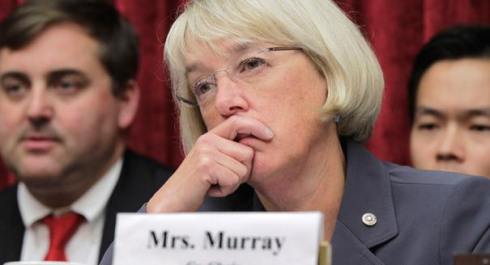
By Samantha R. Selman
Republican House Speaker John Boehner warned President Barack Obama on Wednesday that he can either accept a GOP alternative to a comprehensive “fiscal cliff” compromise or “be responsible for the largest tax increase in American history.”
“I hope the president will get serious soon about providing, and working with us on, a balanced approach,” Boehner told reporters in a brief public appearance at which he took no questions.
The verbal hardball tactics came one day before the Republican-led House of Representative was to vote on the speaker’s “Plan B,” which would extend Bush-era tax cuts on income up to $1 million but would raise tax rates above that. His plan also keeps in place deep automatic defense and domestic spending cuts—the so-called sequester—that key Republicans have spent months denouncing as unacceptable and dangerous to national security.
“Tomorrow, the House will pass legislation to make permanent tax relief for nearly every American—99.81 percent of the American people,” Boehner said. “Then the president will have a decision to make: He can call on Senate Democrats to pass that bill or he can be responsible for the largest tax increase in American history.”
The speaker’s remarks hinted at the pitched public relations battle over the fiscal cliff—across-the-board income tax hikes and deep government spending cuts that will be triggered if the White House and congressional Republicans can’t reach a deal. The combination of spending cuts and tax hikes could plunge the fragile economy into a new recession. Both would go into effect Jan. 1 barring aneleventh-hour compromise.
Republicans have squirmed for months in the face of opinion polls showing the public sides with Obama, who has accused the GOP of holding tax cuts that chiefly benefit the middle class hostage to secure tax cuts for the richest Americans. The president first called for extending tax cuts on income up to $250,000 annually per household, then in a concession to Republicans raised that to $400,000.
Boehner’s gambit also highlighted how he is in a political bind. Many conservatives in the House oppose any tax increase at all. On Wednesday, the anti-tax Club for Growth interest group warned House members to vote against the speaker’s plan. And some House Republicans remain opposed to the automatic defense cuts they say risk endangering national security.
But it’s also not lost on anyone that Boehner’s “Plan B” could turn out to the be the legislative vehicle for any final compromise deal. Once received by the Senate, lawmakers there could amend the package and send it back to the House—though that may be easier said than done.
(Roll Call ace reporter Niels Lesniewski lays out the parliamentary details here with characteristic clarity and thoroughness, noting that “Plan B” might actually prove to be “a much-needed Christmas present” to Democratic Senate Majority Leader Harry Reid.)
In some ways, Obama seems to be playing along with the idea that the time for talking is over and its now time to vote. During a press conference at the White House shortly before Boehner’s comments, the president signaled that he was done negotiating. “Take the deal,” he said.
As for a negotiated compromise? “I think the speaker would like to get that done,” Obama said.
